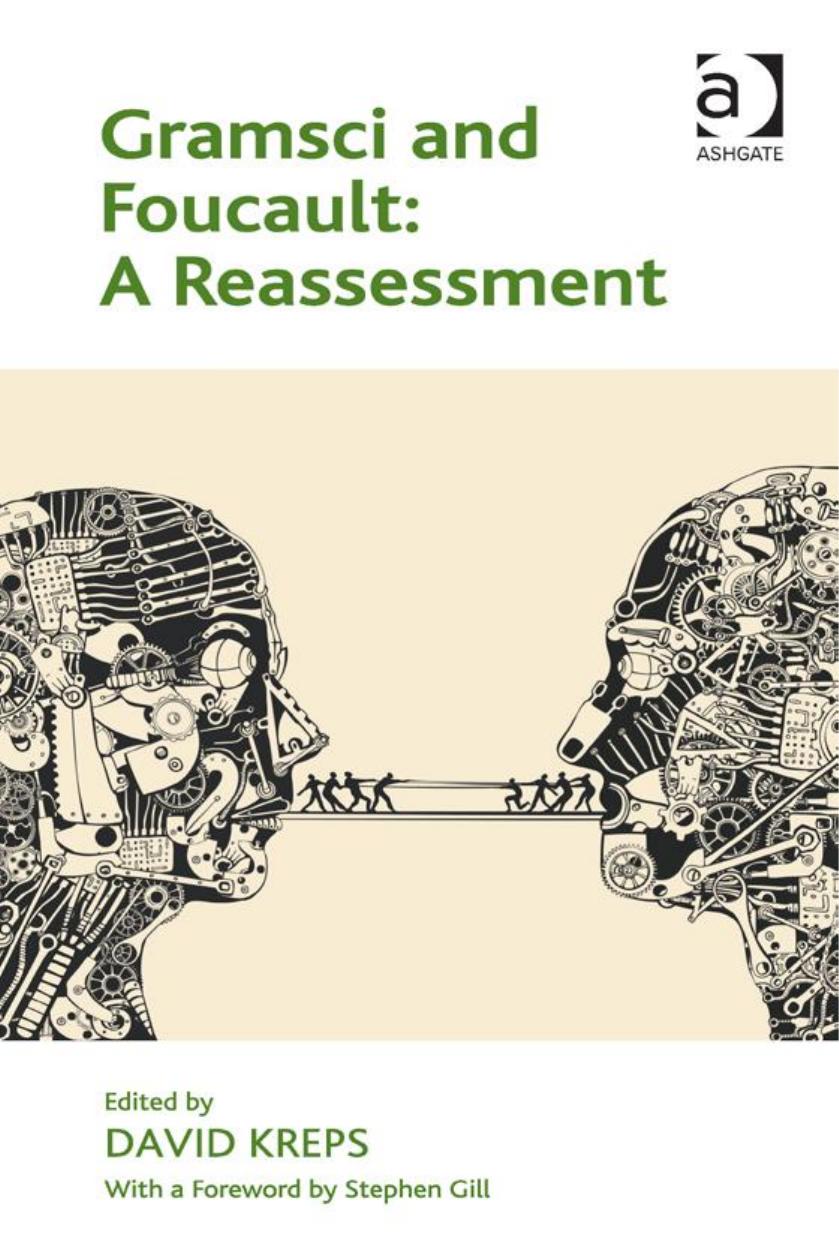Gramsci and Foucault by Kreps David

Author:Kreps, David
Language: eng
Format: epub, pdf
Publisher: Ashgate Publishing Ltd
Published: 2015-03-09T16:00:00+00:00
Conclusion – Paths Leading Elsewhere
It pays to note that Gramsci was an advocate of a ‘democratic road to socialism’ (Morera 1990: 23). This was a position formed probably due to his distaste for fascism and its version of the ‘dictatorship of the people’. Although Gramsci does not explicitly detail his conception(s) of democracy, he has left enough for the convergence to form through numerous contingent readings by others of his writings. When collating my readings of Gramsci’s primary works with the arguments formed in the secondary works, the synthesis seems to support a compassionate, equitable, but inescapably foundational and thus flawed conception of democracy. Democracy was the route for Gramsci to attain the emancipation of the working masses. It flew in the face of the need to recognize that Marx and Lenin were not right about everything and that the party leadership would not be able to meet his utopian vision of benevolent expertise. Nevertheless, although democracy was a means to an end for Gramsci, his heuristics were contemporaneously important to counter fascism. When taken with the required amount of salt as post-foundationalists do, many of his normative and more equitable desires are still of importance today.
Foucault approaches the conclusions of Gramsci from his own points of departure. My chapter highlights the differences of origins in argumentation between the two thinkers but in the end highlights the view that they seem to come to agreement over empowering the individual (or citizen) with expertise. It was Foucault’s way of questioning the structures and origins of discourses that led to his criticisms of forms of governmentality and dominance. The focus on the complexity of the individual and its societies in his historical as well as contemporaneous works (circa 1960s, ’70s and ’80s) can be established as an emancipation of the self. I am uncertain if Gramsci would have reached this point. Nevertheless, I reason that both support the argument that the individual must have hegemony and must be an expert on the transmutations of power and how it affects human beings.
In the end, the conclusion of this chapter reached in the final row of the last column in Table 5.1 points invariably to an unfinished project affecting the politics of today. From studies into the diffusion of political knowledge (Rapeli 2014 and 2013), or a citizen’s knowledge of politics, and of a practitioner’s (i.e. politician’s or bureaucrat’s) knowledge of normative expectations from political philosophers, it is critically clear that the majority of individuals populating those categories are failing to reach variously constructed bottom parameters.
The Gramsci–Foucault axis of democracy is based on the need for each individual to have expertise in politics. This I think would today encompass the expectations experts have for democratization, democracy practices, and the way that power within democracy and power exercised by the individuals and associations composing the demos occurs. The two thinkers and my interpretation of their thoughts in this chapter, point to the need for a turn in human knowledge: a turn towards politics, philosophy, social theory, and in the end, knowledge of democracy.
Download
This site does not store any files on its server. We only index and link to content provided by other sites. Please contact the content providers to delete copyright contents if any and email us, we'll remove relevant links or contents immediately.
| Anthropology | Archaeology |
| Philosophy | Politics & Government |
| Social Sciences | Sociology |
| Women's Studies |
Nudge - Improving Decisions about Health, Wealth, and Happiness by Thaler Sunstein(7678)
The Fire Next Time by James Baldwin(5409)
iGen by Jean M. Twenge(5398)
Adulting by Kelly Williams Brown(4552)
The Sports Rules Book by Human Kinetics(4367)
The Hacking of the American Mind by Robert H. Lustig(4355)
The Ethical Slut by Janet W. Hardy(4232)
Captivate by Vanessa Van Edwards(3827)
Mummy Knew by Lisa James(3670)
In a Sunburned Country by Bill Bryson(3524)
The Worm at the Core by Sheldon Solomon(3468)
Ants Among Elephants by Sujatha Gidla(3450)
The 48 laws of power by Robert Greene & Joost Elffers(3203)
Suicide: A Study in Sociology by Emile Durkheim(3002)
The Slow Fix: Solve Problems, Work Smarter, and Live Better In a World Addicted to Speed by Carl Honore(2990)
The Tipping Point by Malcolm Gladwell(2896)
Humans of New York by Brandon Stanton(2860)
Handbook of Forensic Sociology and Psychology by Stephen J. Morewitz & Mark L. Goldstein(2689)
The Happy Hooker by Xaviera Hollander(2678)
